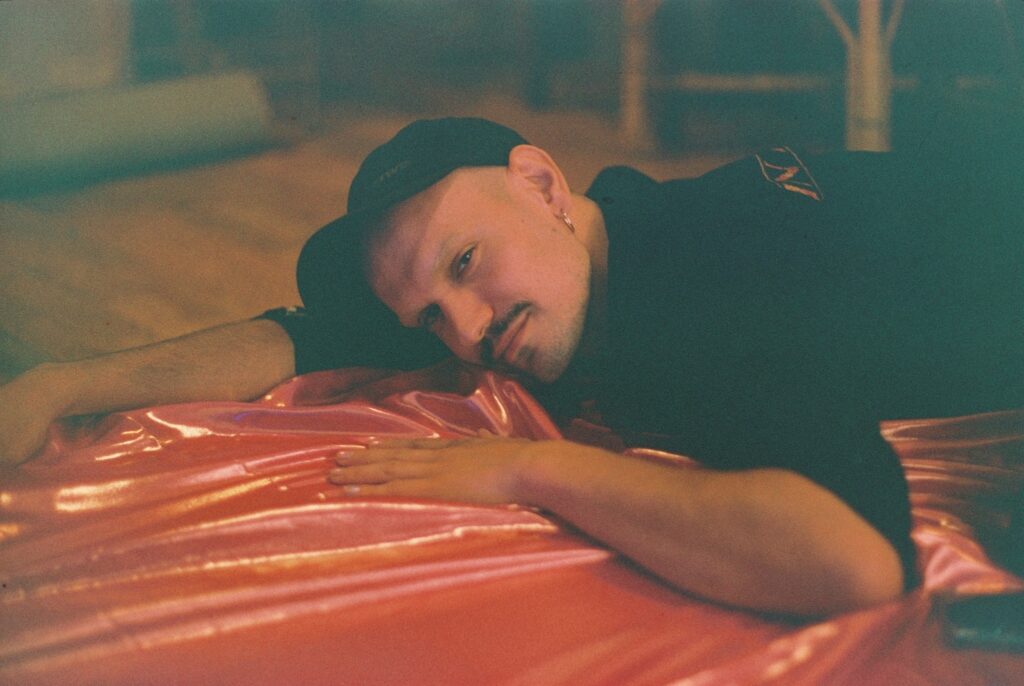Thymios Fountas is a playwright and theater maker whose work explores queer identity, social issues, and poetic storytelling. His recent play, Sauvez Bâtard, showcased at Studio Varia from November 5 till 9 blends humor with sci-fi to examine survival and love. The Royal Academy of French Language and Literature of Belgium awarded him the Grand Prize for Performing Arts.
Tell us a bit about yourself. What has been your journey?
“I’m Thymios, I’m a theater maker and playwright. I was born in Copenhagen from a Belgian mother and a Greek father. I arrived in Belgium at the age of 3, first in Brussels, then in a small village in the Famennes, close to Dinant. Like a lot of queer people growing up in the countryside, I had to face the lack of positive LGBTQ+ figures around me. I started playing piano at 9 and wanted to make it my career. At that time, music in general but also the Internet (writing fanfictions, playing video games, chatting with other queer people) had a big place in my life. But a certain loneliness that comes with those two activities was not completely satisfying. At the age of 19, I decided to move to Paris and began to follow drama lessons. I found in theater a space of freedom and playfulness. In Paris, I met many queer and trans activists who helped me develop my political awareness. I also fell in love. Many times. It was a beautiful mess! Back to Brussels, I studied acting in a drama school. Narrow minded people and discrimination I faced there really eroded the confidence I had in my own voice. Theater could not be just about perpetuating violence through male gaze, gender stereotypes and ethno-cultural hegemony, telling again and again the same old stories. That’s how I decided to create my own work.”
What are your current or future projects?
“I created my first show in April 2023 called Sauvez Bâtard (Save Bastard). It’s a poetic sci-fi theater play taking place in a world where the sky has disappeared. There’s a murder, a goofy trial, and of course a love story. As the main character, called Bâtard (he’s a real pain in the ass, trust me) is a poet, the whole play is written in a very poetic way : rhythmic and full hallucinating images. For me, it asks the following question: how can love be possible when one’s stuck with their survival mode? Indeed the two lovers face their precarious conditions with two different strategies : one is driven by success and desperately seeks for social approval, the other holds to his poetic practice like there’s no tomorrow. And there isn’t indeed. Even though the narrative appears very dark and gloomy, I don’t like miserabilism. It’s also very funny! For me, humour is very important and I really like writing jokes. I see it as both an act of resistance and generosity. The text was published last year (L’arbre de Diane editions) and the show is now touring. You can see it in Théâtre Varia in Brussels in November this year. My next writing project will be about post-Internet sexual practices that are based on sight, fantasies and self-hypnosis. It’s the very beginning so I can’t say more for now…!”
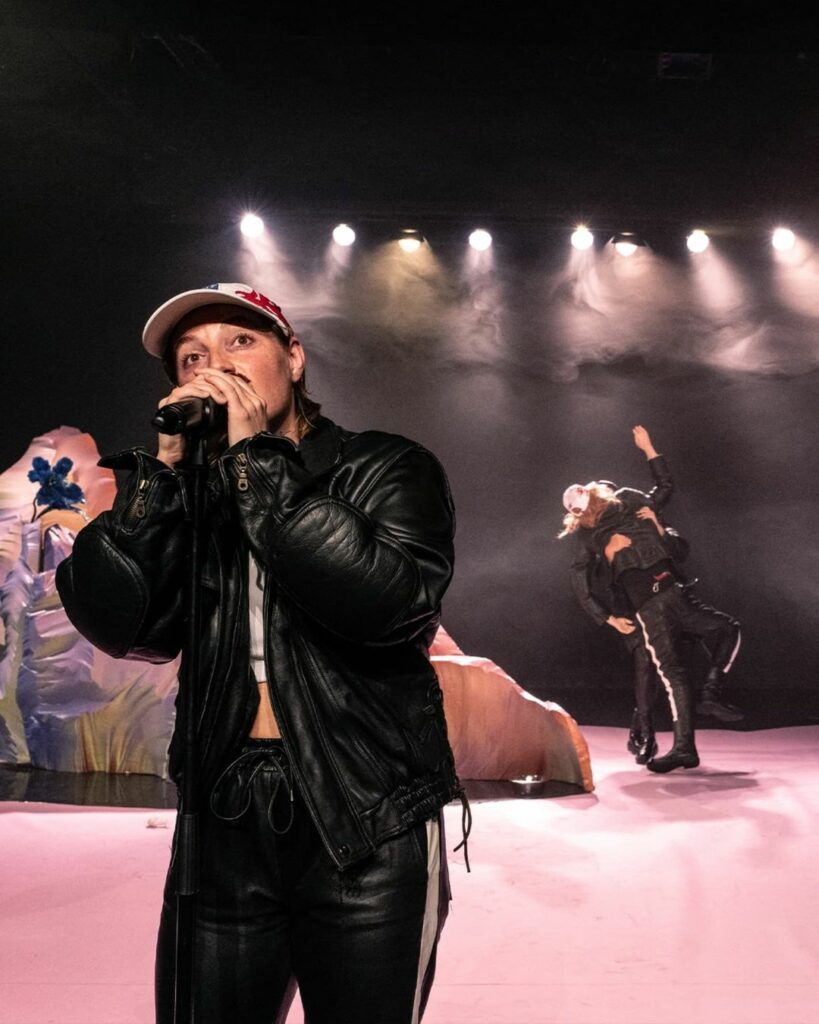
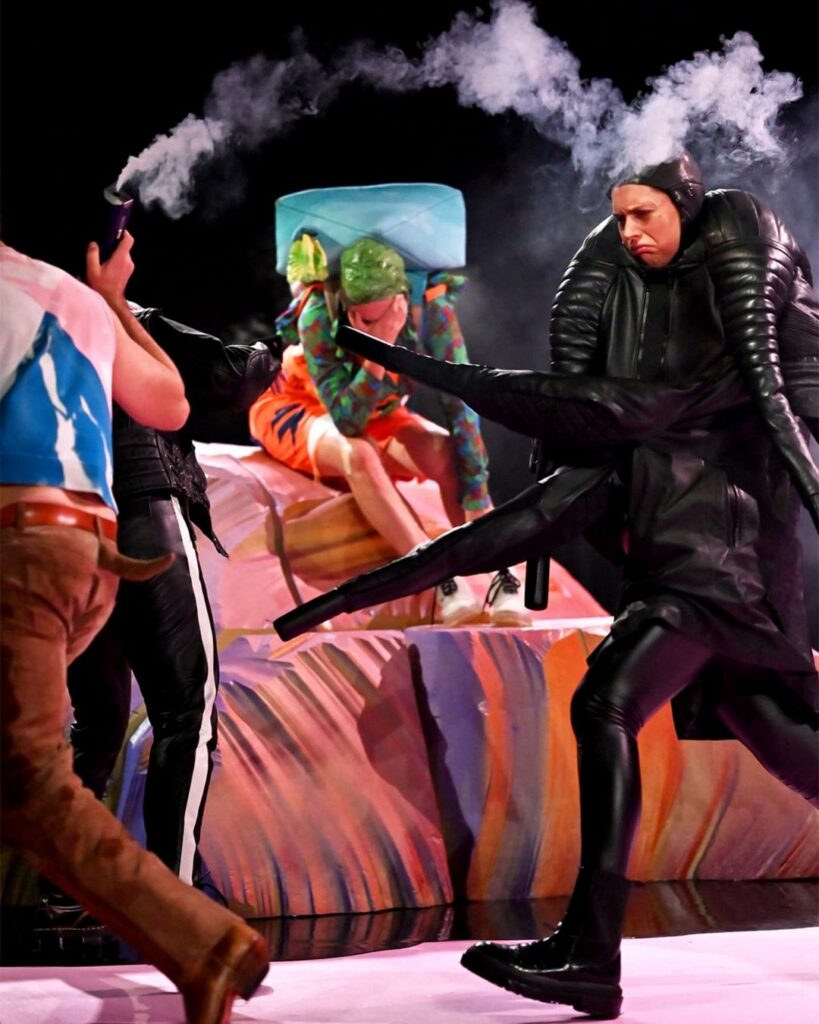
What does being a part of the Brussels queer community mean to you?
“For me, politics are strong when rooted in experience. I didn’t choose to be queer, but I choose to make it part of my work. As many parts of my identity, I let it infuse in my work, and hope it can touch other queer people and inspire them. I don’t see identity as a defined thing though, it’s always in process. Brussels is a vivid and diverse city. Because it’s not big, the queer community sometimes feels like a village inside of it – everyone knows everyone. Its dynamism, its creativity and its sense of commonality, despite its size, makes it exceptional. It’s sometimes hard for me to feel like I belong to any group or community, so that makes this one a tough question! Although I really feel connected, and I met many beautiful beings here, through friendships or collaborations.”
What are your queer influences?
I’m very fond of artists with strong aesthetics and a real sense of drama and absurdism, especially when it comes to cinema. I’m thinking of Gregg Araki, Bertrand Mandico and Ryan Trecartin & Lizzie Fitch to name few. Each of their works play with genres in its own way, challenging our taste and generating new affects. It’s also what queerness is about, right? Resisting hegemonic narratives by creating new norms. In literature, I would go with Virginia Woolf’s hallucinations and Jean Genet’s insolence.
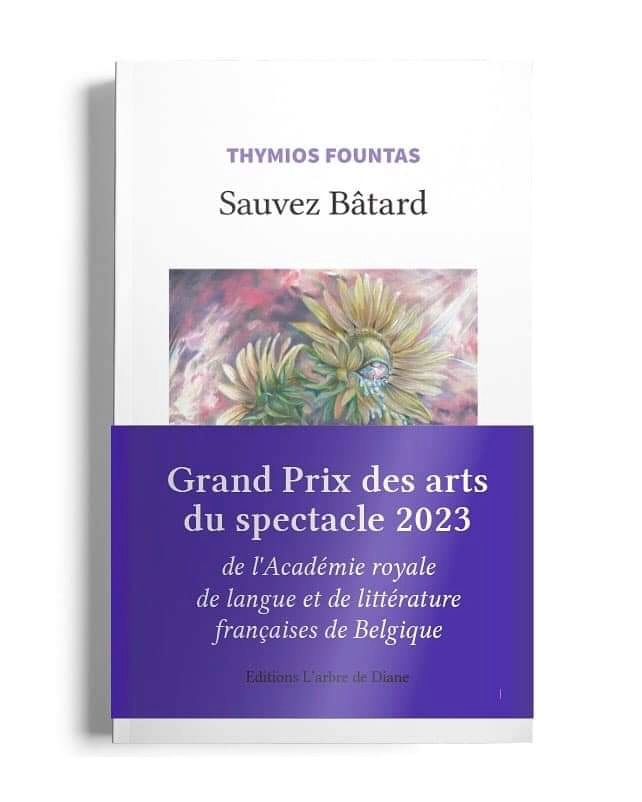
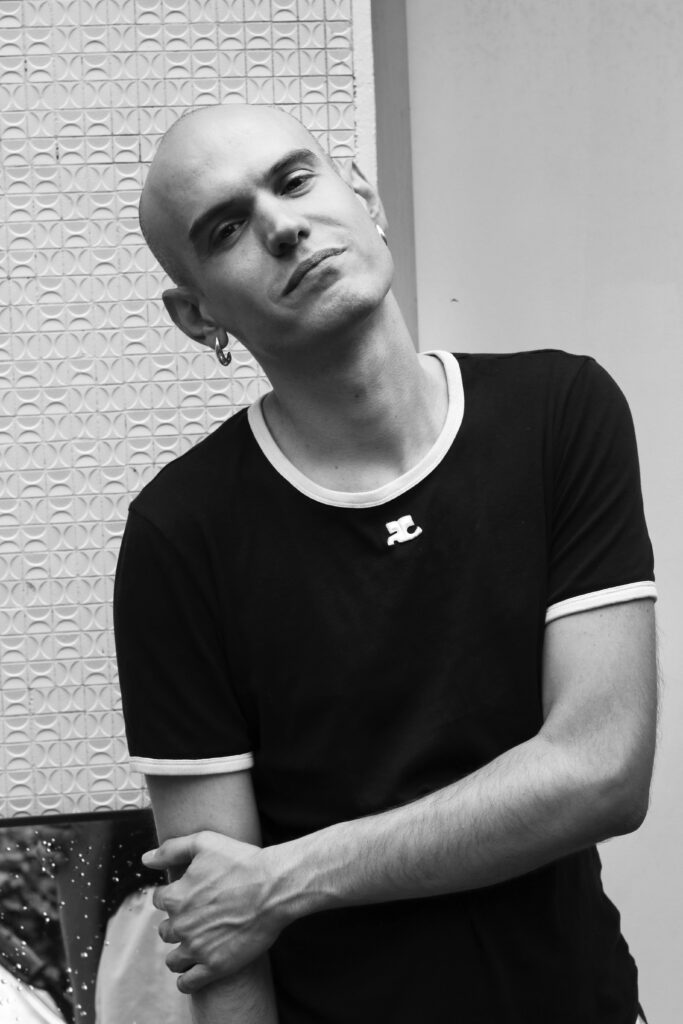
What Brussels or Belgian queer initiatives are you fond of?
Spontaneously I would say Bye Bye Binary. I really admire the way they’re contributing to inclusive writing. Their work is so cool! It’s elegant, playful and always readable. A good way to debunk the assessments coming from conservatives saying that inclusive writing is too complex and unsightly. It also opens perspectives for non-binary / non-gendered artistic writings in the fields of poetry and literature. I’d also like to mention the drag performances from collective “Not Allowed / Glitters Time” formed during covid by Drag Couenne, Dame Lylybeth, Blanket La Goulue, Rose Gigot & others. During these dark times, their work really brought us the “glitters” we needed, in a sensitive and political way. Their individual breakthrough since then is due to their amazing talent ; it also illustrates one of my favourite Brussels’ qualities : its vivid interest for the underground scene.
Pictures by Margot Briand, A. Piemme / AML, Théo Mauroy & Laurent Poleo-Garnier.
You may also like
-
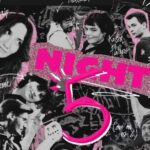
NIGHT 5: The Official Kickoff to Festival Season in Brussels!
Get ready to ignite your summer—NIGHT 5 is here to launch the festival season with
-

Why Staying in Brussels in July Is Absolutely Brilliant
In partnership with Visit.brussels If you think summer in Brussels means empty streets and closed
-

Barbara Butch: The Trailblazing DJ Who Turned the World’s Stage into a Celebration of Diversity
Meet Barbara Butch, the French DJ, activist, and cultural icon who’s been spinning more than
-
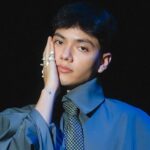
Interview with JJ, Eurovision 2025 Winner: “Live Each Day with Pride, Because We Are Unstoppable”
With his “pop opera”—as he defines his music—JJ brought victory to Austria at the recent
-
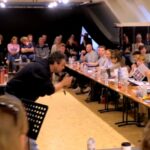
Two Sensational New Musicals Set to Shine at Bruxellons Festival
This summer, the Bruxellons Festival is gearing up to present two extraordinary musical premieres, each

